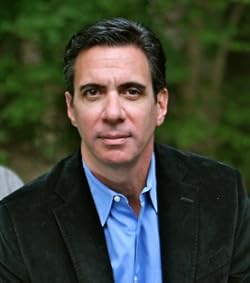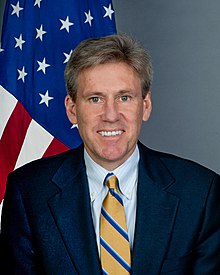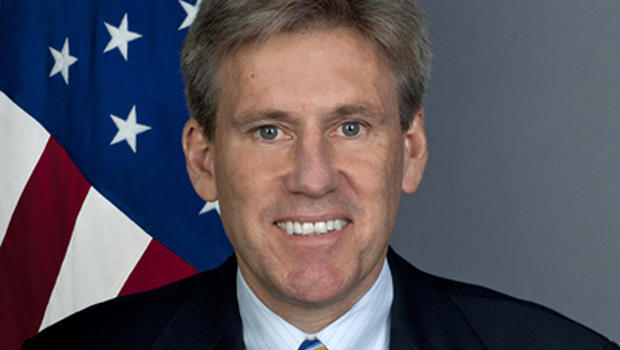The harrowing, true account from the brave men on the ground who fought back during the Battle of Benghazi.
13 HOURS presents, for the first time ever, the true account of the events of September 11, 2012, when terrorists attacked the US State Department Special Mission Compound and a nearby CIA station called the Annex in Benghazi, Libya. A team of six American security operators fought to repel the attackers and protect the Americans stationed there. Those men went beyond the call of duty, performing extraordinary acts of courage and heroism, to avert tragedy on a much larger scale. This is their personal account, never before told, of what happened during the thirteen hours of that now-infamous attack.
13 HOURS sets the record straight on what happened during a night that has been shrouded in mystery and controversy. Written by New York Times bestselling author Mitchell Zuckoff, this riveting book takes readers into the action-packed story of heroes who laid their lives on the line for one another, for their countrymen, and for their country.
13 HOURS sets the record straight on what happened during a night that has been shrouded in mystery and controversy. Written by New York Times bestselling author Mitchell Zuckoff, this riveting book takes readers into the action-packed story of heroes who laid their lives on the line for one another, for their countrymen, and for their country.

13 HOURS presents, for the first time ever, the true account of the events of September 11, 2012, when terrorists attacked the US State Department Special Mission Compound and a nearby CIA station called the Annex in Benghazi, Libya. A team of six American security operators fought to repel the attackers and protect the Americans stationed there. Those men went beyond the call of duty, performing extraordinary acts of courage and heroism, to avert tragedy on a much larger scale. This is their personal account, never before told, of what happened during the thirteen hours of that now-infamous attack.
///////////////////////////////////////////////////////////////////////////////////////////////////////////
The attacks began with a rifle-butt knock on the guard booth glass and a curse command. From there, the September 11th, 2011 assaults on the Special Mission Compound and a nearby C.I.A. annex compound in Benghazi, Libya escalated into the murders of two high State Department officials and two C.I.A. contract workers. For the Annex Security Team who helped write this book, the Islamic militant assault marked the most harrowing thirteen hours of their lives, a seemingly endless period during which they fought and struggled to repel the zealot attackers who badly outnumbered them. In this galvanizing book, they tell their personal stories of that day, restoring a human immediacy to events still fiercely debated in Congress
////////////////////////////////////////////////////////////////////////////////////////

COM Professor Mitchell Zuckoff’s new book offers a firsthand account of the much-disputed fatal terrorist attack on the US diplomatic compound in Benghazi, Libya. Photo courtesy of Mitchell Zuckoff
/////////////////////////////////////////////////////////////////////////////////////////////////////////////////////////////////////
But the College of Communication journalism professor’s coauthors, the five surviving members of the Annex Security Team, former military contractors charged with guarding the nearby CIA base, quickly won his trust, respect, and friendship. And their previously unreported account of that chaotic night—titled 13 Hours (Hachette Book Group)—found its way to the front page of the New York Times in spite of a news embargo that ended on the book’s official publication date, today, September 9.
In the course of his research, Zuckoff met repeatedly with, and grew close to, the five security operators: Mark “Oz” Geist, Kris “Tanto” Paroto, John “Tig” Tiegen, and two who asked to be identified by pseudonyms and appear in the book as Jack Silva and Dave “D.B.” Benton. A sixth team member, Tyrone “Rone” Woods, died in the rescue. The five describe in the book how they ultimately entered the diplomatic compound against orders from their CIA commander, orders they believe lost valuable time that could have saved those under fire inside, says Zuckoff, the author of two previous best sellers based on real-life events, Frozen in Time and Lost in Shangri-La. Subtitled The Inside Account of What Really Happened in Benghazi, 13 Hours “is not about what officials in the United States government knew, said, or did after the attack, or about the ongoing controversy over talking points, electoral politics, and alleged conspiracies and cover-ups,” the authors write. “It is about what happened on the ground, in the streets, and on the rooftops of Benghazi…when lives were saved, lost, and forever changed.”
With open Congressional hearings on the Benghazi affair looming, and former Secretary of State Hillary Clinton and the Obama administration’s handling of the affair under intense scrutiny, Zuckoff will be making the rounds of TV news shows in the coming weeks. The book’s revelations have already been the subject of a documentary that aired on Fox News last weekend.
BU Today spoke with Zuckoff about the challenges of writing a fresh account of a topic dominating the headlines, about why the Annex contractors were intent on making their story public, and why this book was an “as told to” project he could not refuse.
BU Today: How did this project come about?
Zuckoff: I got a call from my agent, Richard Abate, in New York, who asked me, “What do you think about Benghazi?” He’d become aware that the guys who had fought the battle were sticking together and talking about doing a book. I said I’d love to talk to them. They’d approached several writers, but we hit it off and I think they trusted me. I was very clear with them how I would do this and that it would not be something I’d get involved in unless we could tell the story truthfully; I wasn’t going to carry anyone’s water.With at least four existing books about the Benghazi attacks, what were the challenges of covering such heavily trod-on territory?
Actually this wasn’t heavily trod-on territory. One of the first things I did was say, “We’re not going to go where everyone has gone. The politics in DC, who said what on the morning talk shows—that’s not our book.” What these guys had unique knowledge of was what happened in Benghazi on the ground and on the rooftops, and that had not been covered. They knew exactly what happened during these 13 hours.
In this September 13, 2012, photo, a Libyan investigates the destroyed US Consulate in Benghazi after an attack that killed four Americans. The attack is the subject of a new book by COM Professor Mitchell Zuckoff. AP photo by Mohammad Hannon
Why did they take so long to come forward?
As CIA contractors, they had signed a nondisclosure agreement, and we had to deal with that. But they did tell their story during closed-door sessions in Congress. The House Intelligence Committee did a very good job keeping its testimony closed.Did they have an ax to grind?
Their ax wasn’t that they had not gone public. They were really frustrated that so many lies were told. That’s been a real problem for them, not being able to run to the phone and say, “What you just reported was bull.” These are very mature, serious guys who were able to understand that they would have their say in this book and had to be patient.Were you worried that after you signed on, you wouldn’t believe their story?
Yes. I can’t describe everything I did, but I needed reassurance from outside that these guys were who they said they were. We’d seen Dylan Davies, the security officer believed to have duped 60 Minutes. I wasn’t going to step into that honeypot. I took some reporter’s precautions. These were the guys that were actually there, and then I did a little bit of a gut check—when you meet with people you get a sense of, are they lying or embellishing? I interviewed them separately, and the differences between their accounts were all in normal tolerance levels.Aside from news accounts, did you have access to any documentation—radio transcripts or video—from those 13 hours on the ground?
I didn’t have access to the videotapes taken from a drone that was overhead, but its feed was seen by members of Congress.You were the blind guy with the elephant.
Exactly. Making sure I didn’t confuse the trunk for a snake. Going back over it so many times that it felt like I could close my eyes and walk from the CIA annex to the diplomatic compound. I was quadruple-checking everything.Did you go to Benghazi?
I considered it, but the security situation had deteriorated to the point where the jeopardy didn’t balance the effort. I go everywhere—I think nothing of living for a month on a glacier in Greenland—but in a weird way, not going there forced me to do more in-depth interviewing and more work with the guys, and it turned out to be a benefit. I needed them to be my eyes and ears.How long were you given to write the book?
It was due about a year from the signing, and that was too short, but the publisher wanted it out for the second anniversary of the attacks.At what point did you show your draft to your coauthors?
When I completed the first draft, we got together in Washington for three days. Four of the five coauthors were there and one was on the phone. It was great. I really like these guys. I really enjoy their company. At times it took on a locker room atmosphere, but it was exciting. Once it was on the page, they could all feed into it. They said stuff to each other like, “Wait didn’t you, at that moment, fire the grenade?”What mistakes were made in the response to the attacks?
On the American side, there was bad judgment. The worst of it started earlier. Among the major mistakes was the lax security at the compound. This was a soft target, and the guys knew it. They’d been talking about it. In the book I describe how days before the attacks, they went to the compound and said to the Americans, “If you get attacked by a large element you’ll die.” It was a tragic mistake, a tragic error in judgment, having an ambassador in that environment on 9/11 in a place where there’s no functioning government and anti-American militias in the next compound.The New York Times article says the book’s big revelation was that the security contractors at the CIA annex were told to stand down.
Yes, the delay at the annex was a terrible, terrible mistake. They were soldiers and they’d experienced command decisions that they’d disagreed with before. It was only at the end that they decided to disobey those orders. They felt that they could’ve saved those people.Was interviewing the team to piece together a detailed, engaging narrative like pulling teeth, or were they articulate in describing what it was like?
With Tanto, I have 600 pages of typed transcript. With D.B., every word was teeth pulling. He’s a great guy, but he was very taciturn. Thank goodness he was with Tanto every minute that night. I had to train them to understand that I needed the full sensory experience—what it tasted like, what it smelled like, a fully burned villa with drapes that have been doused in diesel fuel—and they described the smell in their chest. Once they started getting that—they’re very bright guys—they’d unexpectedly offer me something that was like, wow. There’s this moment where Jack looks down from this rooftop to this tree where he knows there’s this praying mantis and in the middle of the firefight he thinks about how the praying mantis feels.With so many colliding accounts, why should readers believe yours?
This story has been so politicized and so twisted for various purposes that I spent a lot of time while writing it worried that it would also be manipulated or become part of that. I’m actually at ease now. I know that the book I wrote doesn’t engage in that. And if people choose to twist it out of shape, I can’t stop them. In any fair reading, it will be evident it’s a serious, credible account. That’s why I’m really excited that both the New York Times and Fox News have chosen to see its value without sensationalizing it. How often do those two organizations see it same way?Did Fox pay you?
No, Fox didn’t pay.Did you read the previous books about the attack? How much did you rely on press reports?
I did read Fred Burton’s Under Fire, and I looked at Davies’ book Embassy House, which was withdrawn by Simon & Schuster. I needed to know what they had written, but I did that at the very beginning and then I just put them away. News accounts were hugely helpful. David Kirkpatrick of the New York Times wrote an amazing story from the perspective of the attackers. Our book has a 30-page bibliography. I couldn’t have done it without all the good news coverage.Do you think your book is likely to influence the coming hearings on the Benghazi attack?
I think it will. It feels a little strange. I haven’t focused on it a lot, but to me there were so many things in the book that are just as important and tend to focus on the human aspect, things that might never be discussed in the hearings, such as the heroism of these men. There’s a moment in the book where Tyrone, Tig, and Jack are outside the front gate, and they know that inside are buildings on fire and men running around with assault rifles. And Woods pops up from behind this barrier and runs in the front gate. He died in the mortar attack.Do you have a first reader on your books who helps guide you?
My wife, Suzanne Kreiter, a photojournalist, is always my first reader. She is fantastic at telling me when I’m there and when I’m not. My second reader is my father, who is a retired history teacher. He’s a close reader, from grammar to logic.Would you take on a project like this again?
I wouldn’t go looking for this kind of arrangement. If the right story came up, maybe. I don’t have a lot of interest in sitting down with a powerful CEO and doing an as-told-to book. But this was such a rare opportunity to work with the actual participants. That’s a gift.////
| Chris Stevens | |
|---|---|
 | |
| 10th United States Ambassador to Libya | |
| In office June 7, 2012 – September 11, 2012 | |
| President | Barack Obama |
| Preceded by | Gene Cretz |
| Succeeded by | Laurence Pope (Chargé d'affaires)[1] |
| Personal details | |
| Born | John Christopher Stevens April 18, 1960[2] Grass Valley, California, U.S. |
| Died | September 12, 2012 (aged 52) Benghazi, Libya |
| Nationality | American |
| Alma mater | UC Berkeley UC Hastings College of Law National War College |
| Profession | Diplomat, lawyer |
////
John Christopher Stevens (April 18, 1960 – September 12, 2012) was an American diplomat and lawyer who served as the U.S. Ambassador to Libya from June 2012 to September 12, 2012
Stevens was killed when the U.S. consulate in Benghazi, Libya, was attacked by Islamic militants on September 11–12, 2012.
///

////
http://www.amazon.com/13-Hours-Account-Happened-Benghazi/dp/1455582271
http://www.barnesandnoble.com/w/13-hours-mitchell-zuckoff/1119058038?ean=9781455582273
http://en.wikipedia.org/wiki/J._Christopher_Stevens
////
No comments:
Post a Comment